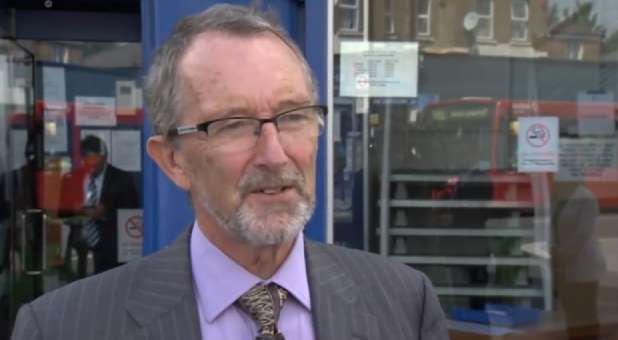Court Upholds Double Firing of Christian Official Who Expressed Biblical Views on Marriage
During an adoption case in which two men sought legal approval as co-parents, Christian magistrate Richard Page shared his views with colleagues behind closed doors.
And those views reflect common Judeo-Christian beliefs: Children do best when raised by both a mother and a father.
That unleashed a firestorm in which Page was reported to judicial watchdogs, accused of “serious misconduct” and ultimately suspended from his position and removed from his role at an NHS trust after he explained on national television that he had been discriminated against for his faith-based values. Following a six-year legal battle, the Court of Appeal has ruled that the double firing was lawful, per Premier Christian News.
“There is tremendous pressure to keep quiet and go along with what is seen to be politically correct,” Page told the Daily Mail in 2015. “I think there is something about a man, a woman and a baby, that it’s natural and therefore the others are not. That is the comment that I made,” he said.
Andrea Williams, chief executive of the Christian Legal Centre, said in a statement:
This is the first time the Court of Appeal has endorsed the perverse distinction between unlawful discrimination for Christian beliefs and lawfully dismissing someone for offending an LGBT audience by expressing those beliefs.
This is simply an artificial way to exclude Christian beliefs from the protection of the law. Nobody would get away with applying a similar distinction to any other protected characteristic. You would not get away with dismissing a homosexual for coming out as a homosexual, and then saying: “we duly respect your sexual orientation as long as you keep it to yourself”. This is an unfair and chilling decision, and the Supreme Court should put it right.
The judgment sends a direct message to Christian public servants that if they allow their beliefs to influence their decision-making while in public office, they must self-censor and be silent, and are ultimately unfit for that office. If they express their beliefs in private to colleagues, they will be reprimanded, and if they then state those beliefs to the media, they will be sacked and will have their lives torn apart.
The idea that you can remove a director from the NHS based on a perception that members of the LGBT community may be offended by something he said in the media, is extraordinary and should concern us all.
Lord Justice Underhill recognized Page’s interest in expressing his views when Piers Morgan questioned him about the initial suspension on Good Morning Britain in 2016. However, he judged that Page’s views on same-sex marriage might cause “offense,” and suggested in his ruling that the defendant should have “declined to answer” Morgan’s questions.
Page’s attorneys had argued in a November 2020 hearing that upholding his removal would force other Christians holding traditional views on sexuality into silence and preclude them from holding public office.
In his concluding statements, Underhill said, “The issue raised by this case is not about what beliefs such a person holds but about the limits on their public expression,” adding that “the freedom to express religious or any other beliefs cannot be unlimited. In particular, so far as the present case is concerned, there are circumstances in which it is right to expect Christians (and others) who work for an institution, especially if they hold a high-profile position, to accept some limitations on how they express in public their beliefs on matters of particular sensitivity.” {eoa}
Read articles like this one and other Spirit-led content in our new platform, CHARISMA PLUS




























































